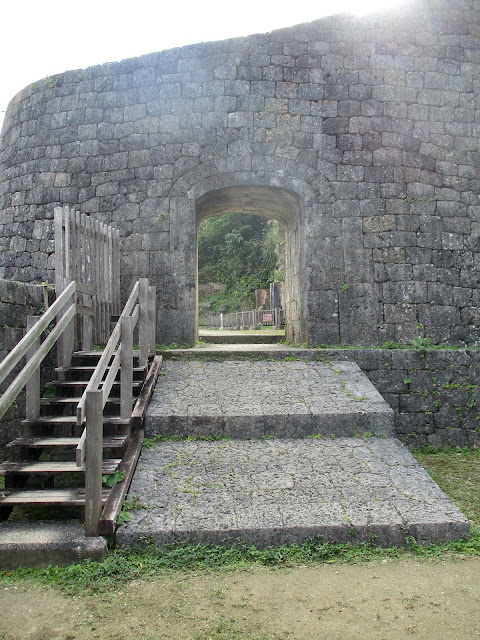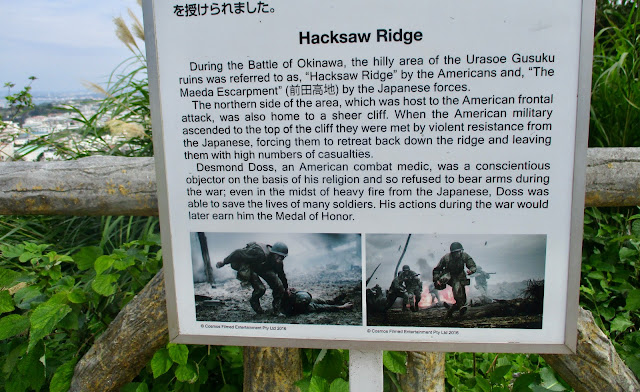Four additional stops were added to the monorail system in Naha since I was last there, so I was able to easily get to this castle ruins. There is a museum on the castle park grounds, but it was closed due to the New Year holidays. This is a great park to visit even if you aren't interested in castles and there is information in English. The weather was beautiful the day I was there, and the walk around was perfect.
Information about Urasoe Castle Ruins from Jcastle
Urasoe Castle was built in the 13th century as a royal residence during the reign of King Eiso (1260-1299). It was expanded in the late 14th century during the reign of King Satsuto (1321-1396). Urasoe Castle was the royal castle for the entire Ryukyu Islands (present day Okinawa). Even during the Sanzan Era, when Ryukyu split into the Hokuzan, Chuzan, and Nanzan Kingdoms, Urasoe Castle was still the main castle for the Chuzan Kingdom. After Sho Hashi conquered Urasoe Castle in 1406 and became the King of the Chuzan Kingdom, the royal castle was moved from Urasoe Castle to Shuri Castle. Urasoe Castle was attacked and burnt down by the invading Satsuma army in 1609.
Urasoe Youdore, a royal tomb for early Ryukyuan kings, is believed to have been built by King Eiso between 1265 to 1274. It is located directly below the north side of Urasoe Castle. King Sho Nei renovated the tomb in 1620 and was buried there after his death.
During the Battle of Okinawa, Urasoe Castle Ruin was the site of some fierce fighting between the American 307th Infantry Regiment and the Japanese 63rd Independent Mixed Brigade between late April and early May 1945. The hill on which the castle ruin is located became known as the Maeda Escarpment(前田高地) to the Japanese defenders and Hacksaw Ridge to the Americans. Urasoe Youdore was also heavily damaged during WWII. It was restored between 1996 and 2005.

























































